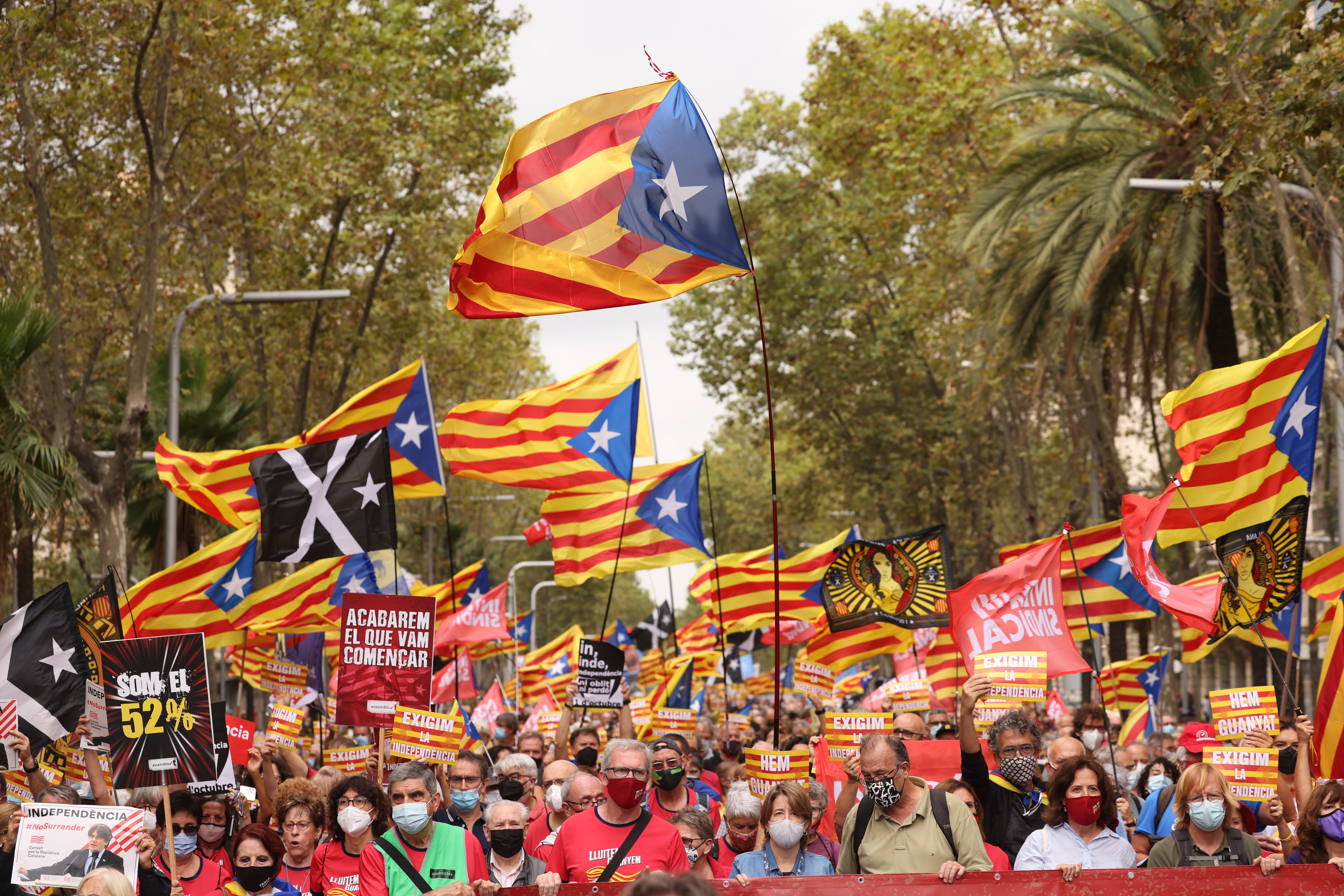"Telephone interventions are the only way to prevent a secession in Spain." These are the words used by the Supreme Court judge responsible for judicial control of the country's National Intelligence Centre (CNI) to justify its intrusion into the communications of 18 people from Catalan pro-independence circles. These electronic intrusions were carried out at a key moment for the independence movement, in October 2019, when the verdicts and sentences were announced in the trial of 12 independence leaders over the Catalan independence referendum of 2017. According to the newspaper El Mundo, among these 18 people spied on were the current president of Catalonia, Pere Aragonès (then vice president and economy minister), as well as people close to the president in exile and MEP Carles Puigdemont. According to the Spanish daily, the judicial authorizations to spy on the contents of mobile phones were explained to the spokespeople of the Spanish parliamentary groups in the official secrets committee last week, when Paz Esteban was still the director of the CNI. Later, she was sacked by the Spanish government, although not for the espionage against the Catalan leaders.
Judicial arguments
According to El Mundo, the judicial rulings which authorized the espionage contained arguments such as: "the need to cut off a new attempt to attack national unity" and "the intention of those investigated to discredit Spain by promoting criminal activities." These are the justifications that allowed the espionage, as well as other personalized arguments detailing alleged offences committed by the individuals investigated. All the court rulings explain that the measures taken to combat the independence movement were "intervention in the cellphones" of pro-independence leaders and people in their immediate environment. However, the resolutions do not specify at any time that the infection of the mobiles would be done with the powerful Pegasus program.
Last week, the now-former director of the CNI, Paz Esteban, appeared before the official secrets committee of the Spanish Congress, but expressly forbade the MPs present from obtaining images of the textual justifications drafted by judge Pablo Lucas. In addition, Esteban denied being involved in the intervention with Pegasus in over sixty phones belonging to pro-independence leaders and people around them, as asserted in CitizenLab's study. Esteban did admit that the Spanish secret services had Pegasus in its possession but added that the CNI "is not the only state service" that has the power to use such means, while defending the legality of action taken on her watch.
Puigdemont points out "repressive logic"
The president in exile and also MEP Carles Puigdemont listed a series of questions to the Supreme Court (TS) after learning of the arguments put by the CNI and accepted by the judge that the espionage on pro-independence leaders "was necessary to stop an attempt to attack the unity of the state". In response Puidgemont asked: "Have they tried holding a referendum and working to win it? Have they tried respecting what the people of Catalonia are asking them through their Parliament and their democratic representatives?" The president in exile went on to offer a possible answer on these issues himself with his third question: "Or is it that only repressive and criminalizing actions enter into their logic?".

Frozen relationships
The Pegasus espionage scandal continues to burn, with the substitution of CNI head Paz Esteban being justified by the Spanish government over a separate Pegasus security breach, and immediately rejected by the Catalan government as an insufficient response to Catalangate. Yesterday, the Catalan Parliament passed a motion to "freeze all institutional relations" with the Spanish executive, and supporting the Catalan executive's maintenance of this strategy in the face of Pedro Sánchez's failure to meet its calls for "accountability, transparency and declassfication of documents". While waiting for Spanish PM Pedro Sánchez to set a date for the face-to-face meeting demanded by the Catalan leader, Pere Aragonès, the plenary of Parliament gave the green light to the cooling of relations with Madrid, in a motion supported by the parties of the governing coalition, Junts and ERC, and the CUP. The Comuns voted in favour of parts of the motion, but on the issue of cooling relations with Madrid they joined the 'no' side of the PSC, Cs, and the PP.

